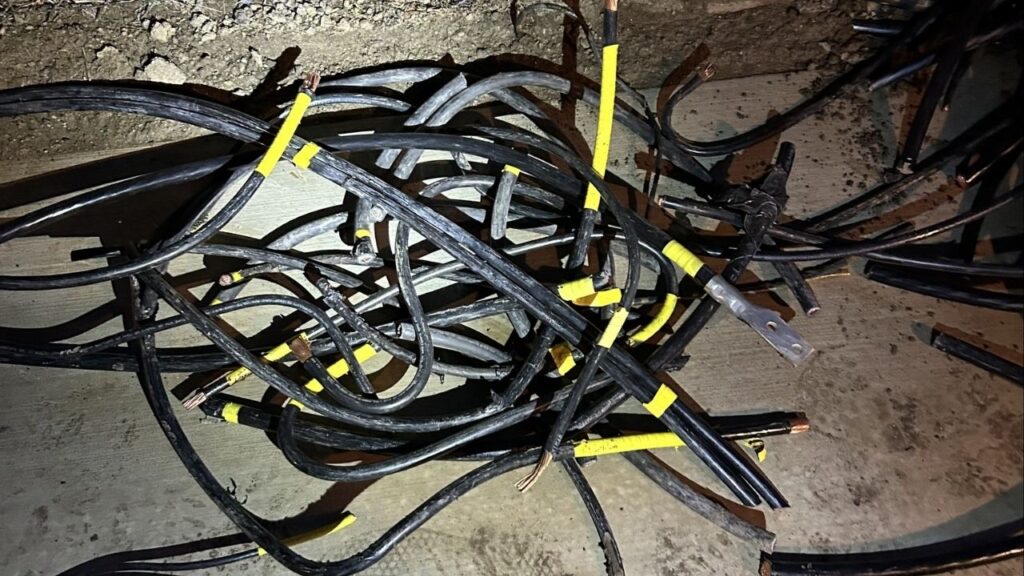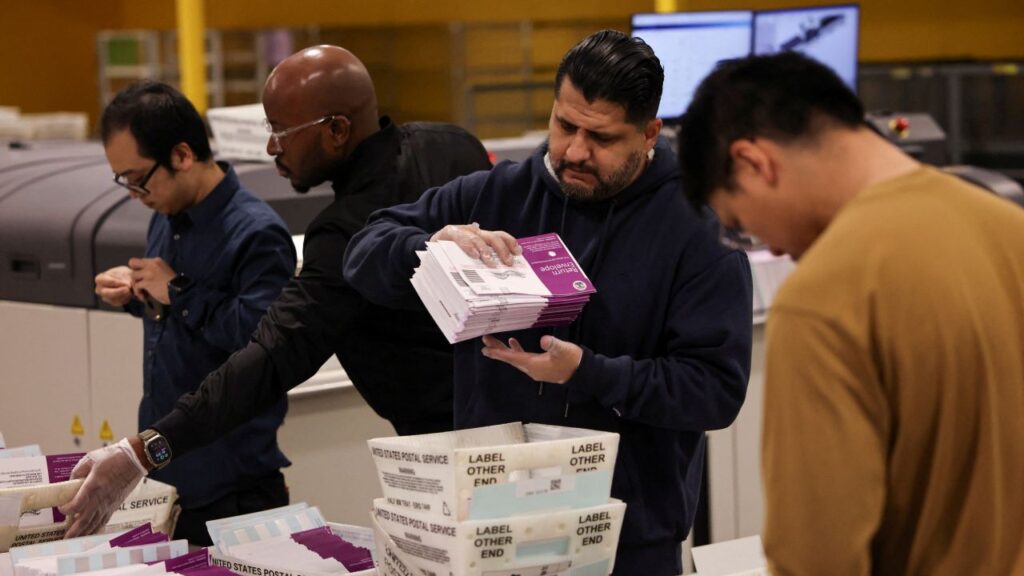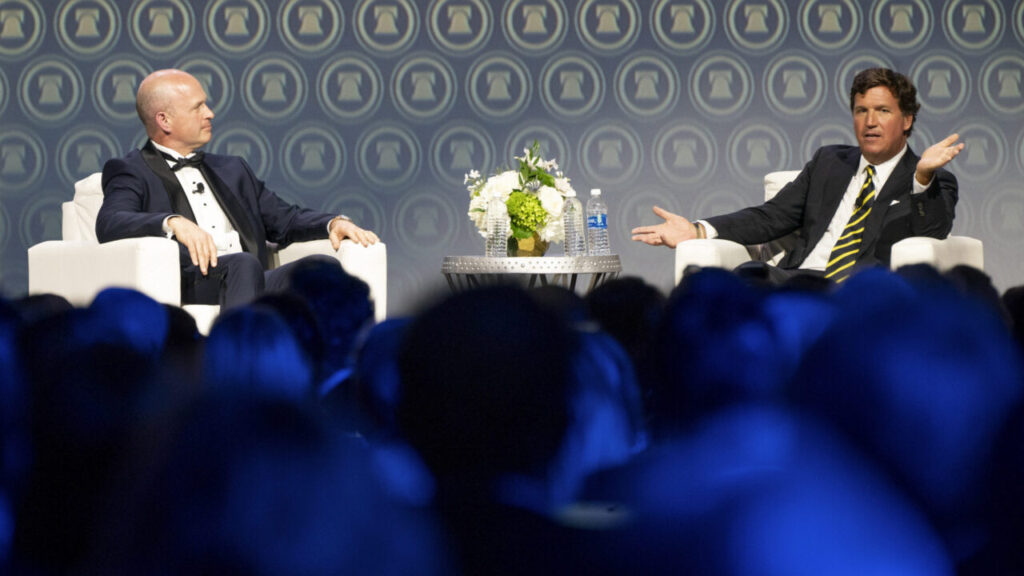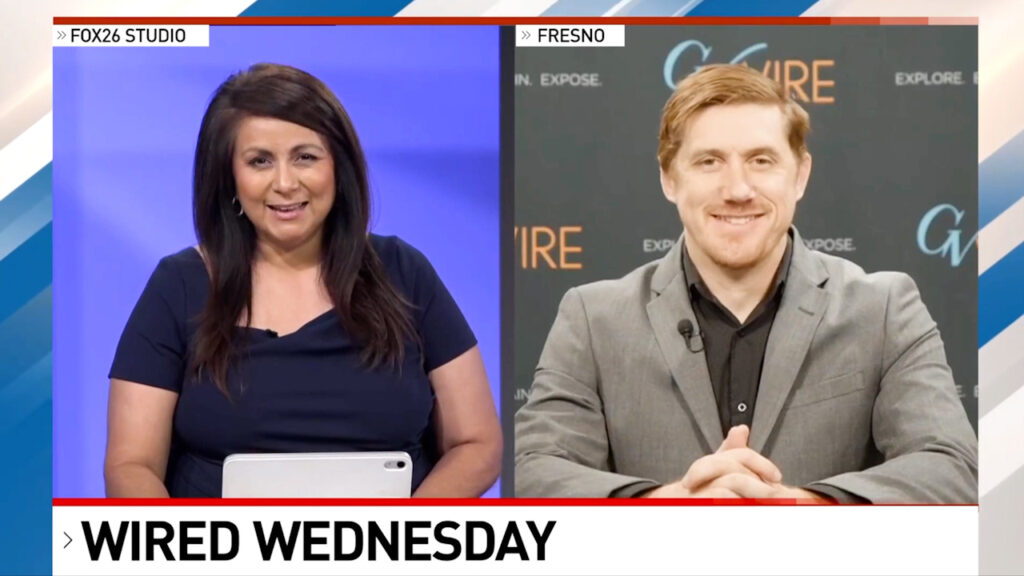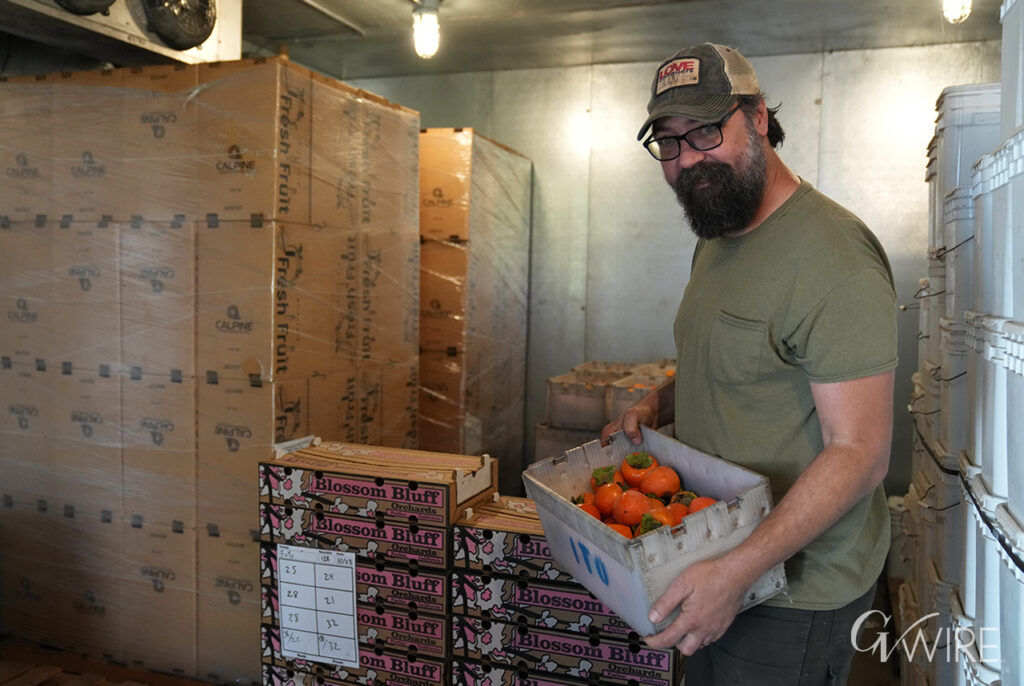Fast food workers cheer before Gov. Gavin Newsom signs legislation boosting wages to $20 an hour during a news conference at SEIU Local 721 in Los Angeles, Sept. 28, 2023. (CalMatters/Alisha Jucevic/File)

- Two competing studies from less-than-objective sources have Californians in the dark about the $20 fast food minimum wage.
- Has it raised prices? Has it cost jobs? An objective third-party study by researchers with "impeccable" credentials is needed.
- In Los Angeles, there's a new political battle over the $30 wage for hospitality workers imposed by the city council.
Share
|
Getting your Trinity Audio player ready...
|
This commentary was originally published by CalMatters. Sign up for their newsletters.
As the California Legislature churns toward the end of its 2025 session this week, processing the remnants of thousands of bills introduced during the year, several measures encompass the Capitol’s most enduring conflict: Labor unions vs. employers over working conditions.
Unions seek higher wages and benefits, citing the welfare and financial needs of workers and their families. Employers counter that the cost of providing what unions want adversely affects their competitiveness in other states and nations and forces them to raise prices, reduce employment or even leave California to remain solvent.
In the main, unions fare better than employers in California’s political arena — not surprising given that union-friendly Democrats from the governor down dominate the Capitol.
One of the most intense union-employer battles arose in 2022 over legislation that would have raised the minimum wage for fast food workers to $22 an hour. It also declared that fast food franchises are merely subsidiaries of their parent chains, rather than independently owned businesses.
Fast food companies and franchisees saw it as a double whammy that not only would increase their costs but it would undermine the franchise system itself. The industry also disliked the bill’s creation of an appointed council with the power to regulate fast food working conditions, especially wages.
The measure passed both legislative houses with party-line votes, and Gov. Gavin Newsom signed it. The industry responded with a campaign to put the issue on the ballot, pledging that affected corporations would spend any amount of money to overturn the law due to its effects on the franchise system.
Franchise System Protected in Legislative Compromise
Which faction would win such a battle will never be known, however, because a year after the bill was signed and after lengthy negotiations, a compromise was worked out and quickly enacted. It raised the minimum wage to an initial $20 an hour and left the oversight council intact, albeit with some changes. More importantly to the industry, it did not interfere with the franchise system.
The new wage went into effect in April 2024, and since then the industry and the unions have sparred over its impact not only on wages but on overall employment and fast food prices.
The factions are marking the second anniversary of the 2023 compromise by issuing reports that could not be more different.
Dueling Experts and Data
Labor acted first with the Sept. 5 release of an analysis by UC-Berkeley’s Center on Wage and Employment Dynamics. It’s a research organization whose reports uniformly support the union side of issues.
Researchers Michael Reich and Denis Sosinskiy declared that the $20 wage did not reduce fast food employment, didn’t change the number of hours worked and “only led to minimal menu price increases (about 8 cents on a $4 burger).” They said their study included price data from more than 2,000 restaurants in California and other states.
Five days later the Virginia-based Employment Policies Institute — which was created by Berman and Company, a lobbyist for restaurant, hotel beverage, tobacco and fossil fuel interests — issued its study based on data from the federal Bureau of Labor Statistics.
It concluded that California’s fast food industry has lost 19,102 jobs since Newsom signed the law in September 2023, including 15,988 since the law went into effect last year, more than double the rate of loss seen in fast food outlets nationally. It did not delve into fast food prices.
The two competing studies from less-than-objective sources leave us still wondering what the true impact might have been. It’s a knowledge gap that should be filled by someone or something with impeccable credentials because other business sectors might be the next targets.
In fact, there’s already a battle in Los Angeles over the $30 wage for workers at hotels and other hospitality businesses imposed by the city council.
Make Your Voice Heard
GV Wire encourages vigorous debate from people and organizations on local, state, and national issues. Submit your op-ed to bmcewen@gvwire.com for consideration.
This article was originally published on CalMatters and was republished under the Creative Commons Attribution-NonCommercial-NoDerivatives license.






